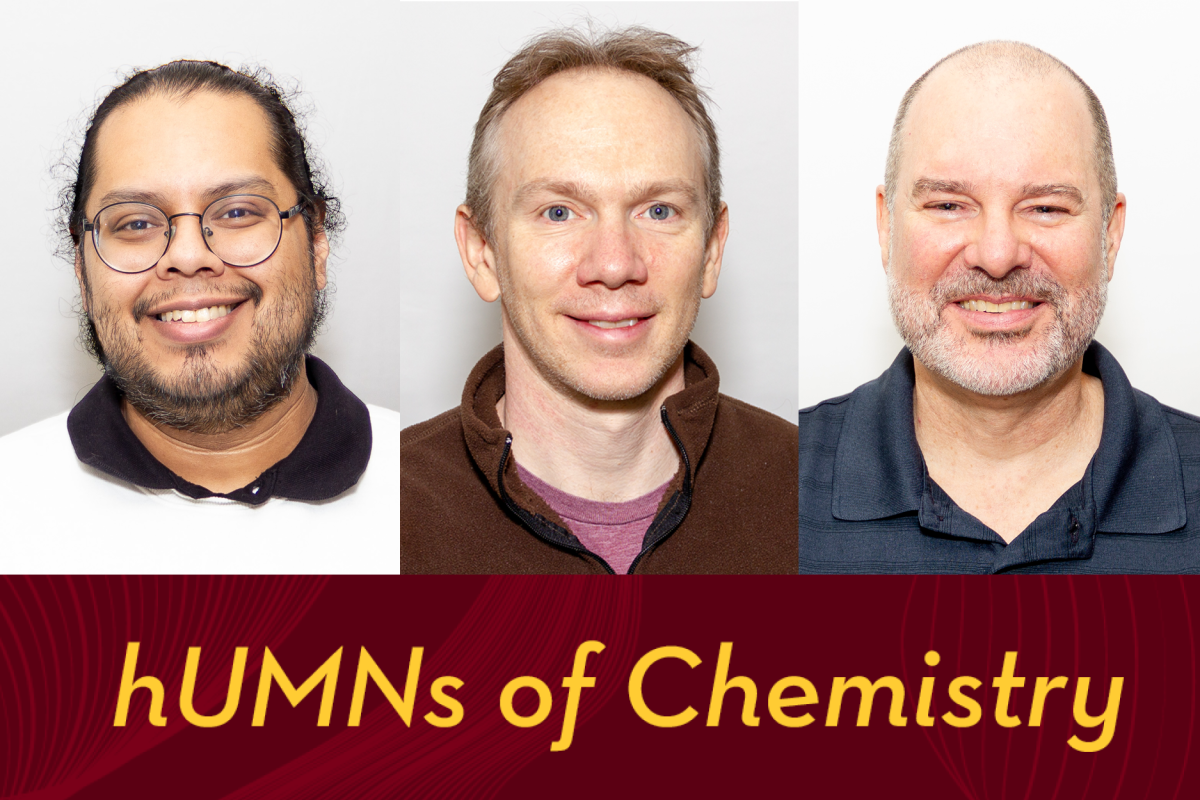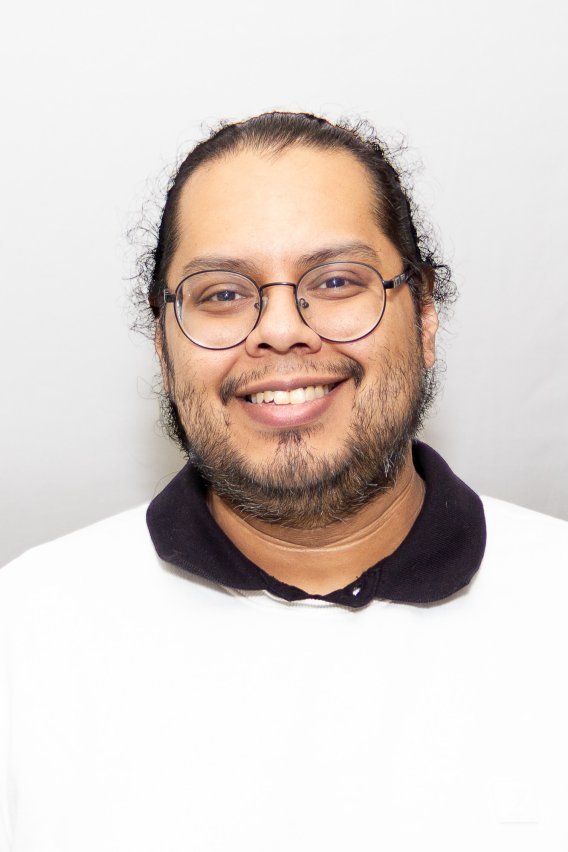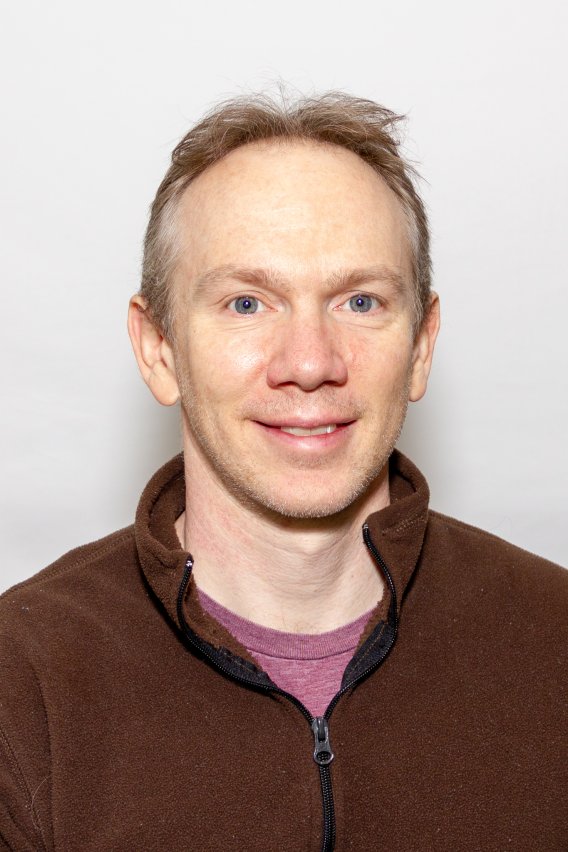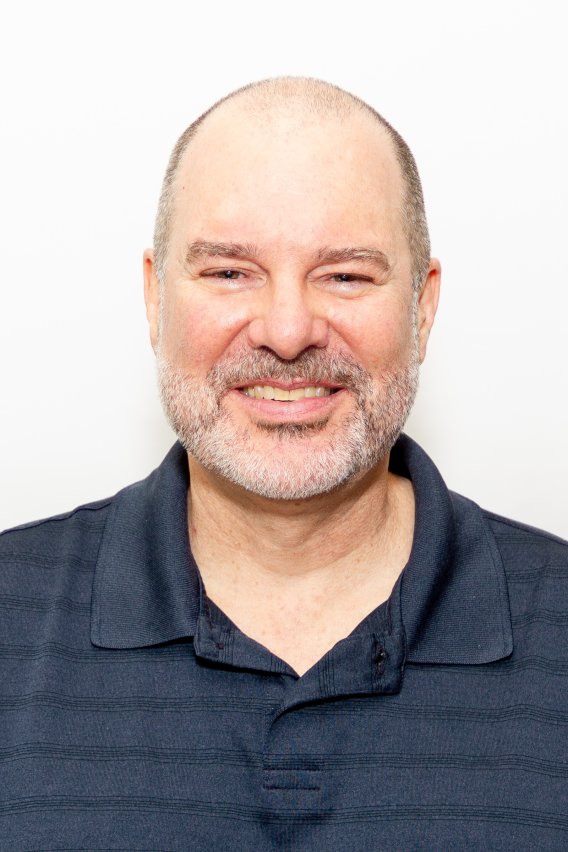hUMNs of Chemistry #11


Steven Diaz
He/him/él
Postdoctoral Research Fellow, Frontiera Group
Tell us about your journey to the University of Minnesota.
As a 6th year graduate student at the University of Rochester, I was interested in applying to postdoctoral research positions and had initial conversations with Dr. Frontiera about what joining her lab as a postdoc would look like. She had also mentioned a fellowship she had heard about here at UMN. With her recommendation, I applied to the President's Postdoctoral Fellowship Program with no expectations and a vague idea of defending my thesis sometime late 2023. In early 2023, Dr. Frontiera sent me an email letting me know my fellowship application had been awarded and that I needed to start the position by September 1st. Luckily, my PI at Rochester was very understanding and helped me defend my thesis sooner than we had anticipated so I could be here at UMN in the fall. If you'd like to hear about the 48 hour adventure that was defending my thesis, I encourage you to ask!
Do you have a background in or like chemistry? Tell us about it!
I both have a background in and like chemistry! One of my first jobs was working as an aquatic specialist at a pet store where I had to regularly test the waters for common chemical analytes (pH, ammonia content, hardness, etc.) While working at the pet store, I obtained my B.Sc. in Chemistry with a minor in Physics from the University of Northern Colorado in 2017. I then proceeded to obtain my Masters degree in Chemistry at the University of Rochester in 2019, and my Ph.D. at U of R in 2023.
Researchers: We would love to hear more about your research! What do you hope to accomplish with this work? What is the real-world impact for the average person?
My research questions are primarily in two regions: developing novel technology for non-perturbative images and spectra; and assessing computational model accuracy with experiments. I'd like to imagine and aid in designing a world where we could measure health information quickly and non-invasively with wearable technologies.
What do you hope to contribute to the chemistry community at the University?
While I won't be here forever, I hope to provide a voice and aid in action towards the improvement of Diversity, Equity, and Inclusion (DEI). As a first-generation Mexican-American scholar, I enjoy discussing and educating in these topics with a lens unique to my experiences.
What’s your favorite piece of chemistry/science pop culture media? Why do you love it?
I would be surprised if this hasn't been an answer before, but I really enjoy listening to the podcast SciShow tangents. I really enjoy this podcast because the hosts discuss a variety of science facts on topics that range from cheese to color to telescopes.
Tell us about who makes up your household (including pets).
My household consists of me and my dog Almond. She is a 70-lb purebred German Shepard Dog who I'm positive would trade me for 3 chicken nuggets. Her favorite toy is a rubber ball, but she also loves her lobster, red squishy star, and blue tug-of-war toys.

Chris Douglas
He/Him
Associate Professor
Tell us about your journey to the University of Minnesota.
I first came to the U as an undergraduate in the fall of 1995. UMN was attractive to me in many ways - far enough from my home in WI that I could retreat home easily, big and scary enough to challenge this farm boy, and full of opportunity. Reciprocity-lowered tuition certainly helped lure me here too. I completed my degree in '99 after taking organic chemistry classes & labs taught by Steve Kass, Craig Forsyth, Ben Lui, Wayland Noland, Richard Hsung, Gary Gray, and George Barany... I took a lot of organic. I had memorable classes from Wayne Gladfelter, Doreen Leopold, Kent Mann, Larry Que, and Hal Swofford. Stephanie Stathopolous made the big institution feel friendly and kind.
After my PhD and Post-Doc out in California, I was on the academic job market in 2007. I went the the alumni breakfast at the fall ACS meeting in San Diego and struck up a conversation with Tim Lodge. He introduced me to the chair of that year's search committee, Marc Hillmyer. Fortunately, I landed the interview and then later the dream job: becoming a PI at my alma mater.
We would love to hear more about your research! What do you hope to accomplish with this work? What is the real-world impact for the average person?
No surprise, I love organic chemistry. Particularly the part where we make stuff. My group has two main thrusts: organic electronic materials and reaction discovery.
In organic materials we want to understand and ultimately control the properties of materials by changing the molecular structure. Much easier said than done. Molecules we've prepared here have contributed to fundamental studies on how charges move in organic solids and how absorbed light can be converted into useable energy... there's an alphabet soup of applications: OLED (organic light emitting diodes), OPVs (organic photovoltaics, i.e. solar cells), and OFETs (organic field-effect transistors).
On discovering new reactions, we've focused on catalyzing reactions that would never take place in a million years without the catalyst. Often that means breaking and forming particularly strong bonds over the course of the reaction. We try to use the reactions we discover in syntheses that highlight new ways to make molecules - strategies that were not possible before the discovery of our chemistry.
What courses do you teach? What can students expect to get out of your course?
This year I'm teaching two courses:
CHEM 8322/4322: Advanced Organic Chemistry - the big goal is for students to learn how to propose syntheses of complex organic molecules from simple ones. Students can expect to learn lots of reactions, strategies, and concepts along the way, like applied qualitative molecular orbital theory & conservation of orbital symmetry. Another big goal is to teach our Grad Students and advanced undergrads to be life-long learners. There are just too many organic reactions to cover in one semester! So I try to teach students how to teach themselves.
CHEM 1903: Freshman Seminar: Chemistry in the Kitchen - Students can expect to learn fundamental chemistry concepts through food and cooking. I cover cross linked polymers through the gluten in Chinese Lamian noodles... chirality through comparing corkscrews to spoons... pH & food preservation through pickling red onions in lime juice (they turn pink), miscibility & solubility through making lemon extracts... the Maillard reaction through making caramel apples. Expect to get an intro to some interesting concepts & something to eat.
What do you hope to contribute to the chemistry community at the University?
Excellence in research, teaching, and service.
When you visit other universities, what do you love to share about our UMN community?
How collaborative we are here! It's fun to 'name drop' all the groups I've co-authored and collaborated with here at UMN, particularly when I talk about our materials projects.
Tell us about an important mentor in your academic life?
Tom Hoye. He was kinda difficult to pin down on a time to chat, but I was willing to work with whatever time he would give. We met in that corner room on the 4th floor of Smith... at about 8PM or so. After a bit of chatting (~ an hour?) about the student's NMR he was looking at when I came in, Tom went through my latest proposal rejection and its reviews line-by-line in only the way he can. I took lots of notes. I emerged from Tom's "office" around 2:30AM with new wisdom. My proposal was funded on the next attempt.
Tell us about an important mentee in your academic life?
Todd Hyster was the first undergraduate to join my group. One day he told me he'd like to come in on Saturdays to do some experiments. Todd didn't have a key to the lab so we'd meet up before getting in the lab. One weekend I found him sitting on the floor outside the lab waiting for me. I knew he was going places.
What do you do outside of the classroom/lab/office for fun?
Quality time with my wife & kids, hiking, cooking, baking, working out, board games (Settlers of Catan), the occasional video game time (StarCraft II).
What’s your favorite piece of chemistry/science pop culture media? Why do you love it?
Making soap/nitroglycerine in Fight Club. It's a compelling plot with a twist. Lye burns don't hurt like that, though.
What was your very first job?
Lifeguard/Swim Instructor
Where is your favorite spot in the Twin Cities?
Al's Breakfast
Tell us about who makes up your household (including pets).
My wife of 21 years, Rosalind. My 16 year old son, Jack. And my 12 year old daughter, Cate.
What non-chemistry interest or activity might surprise department members?
Not a surprise to some, but I've been a 'member' of the FIRE movement since about 2015. FIRE stands for "Financially Independent, Retire Early". I could have retired in 2020 and nearly did. I only do this job because I want to.

Daniel MacEwan
He\Him\His
I.T. Manager
Please give a brief description of your role within the UMN Chemistry department.
I'm responsible for everything that talks on the data network (WiFi, ethernet, etc), devices that sample data, and printers. These responsibilities cover all devices in Smith and Kolthoff hall, both research and teaching. My daily focus is to design and support strategies that maximize instrument up time, protect research data, and create value purchase propositions. I support and analyze compliance with U of M policies for security, software licenses, and central resource use. In short, I try to keep everyone inside the Chemistry buildings happy and keep everyone outside our buildings content.
I am the Electronics Shop supervisor. We analyze and repair computers and equipment when possible and refer people to local vendors that we trust when our expertise is insufficient. We also gently help people realize when the answer is to just buy a replacement device.
I am the departmental computer lab (Microlab) supervisor. I hire and train the Microlab's revolving staff of seven undergraduate students that staff and maintain the facility for upper-division Chemistry students.
I also, like an old school news journalist, research and become a temporary subject matter expert on a variety of technology projects.
Tell us about your journey to the University of Minnesota.
After a tour in the Navy, I arrived at the U of MN as a freshman in 1990. My goal was a bit arbitrary and lofty. I wanted to become a Chemical Engineer from one of the best programs in the nation. My dad was a civil engineer, his dad was an aeronautical engineer, so this felt suitable. I hit a wall in my second year, redirected my efforts into grabbing a Spanish degree, then realized I loved science but not engineering, and knocked out a degree in Chemistry. At the end of that journey I became the Chemistry department's computer lab supervisor and, eventually, the I.T. Manager.
Do you have a background in or like chemistry? Tell us about it!
I have a bachelor's degree in Chemistry from I.T. (now the College of Science and Engineering) here at the U of MN. I did my undergraduate directed studies with Kent Mann. Kent was very kind to add me to the research publication for the compound we were characterizing.
http://pubs.acs.org/doi/full/10.1021/ja016010x
What professional successes are most important to you?
This is a historical reflective question which is awkward for me. I prefer to focus on today and move with strategy and intentionality into the next handful of weeks\months\years.
What do you hope to contribute to the chemistry community at the University?
I would love for the Chemistry Department to have a soul that resonates for the folks in it. My fear is people feel "I have to work here". I want people to universally be able to say "I GET to work here." If I've contributed to that in a consistent and clear manner, that's a win. I can go to sleep at night and smile.
What was your very first job?
I worked at a car wash when I was 14 years old. I didn't have a car, so a friend who was older had to drive me. Most days they wouldn't use me and would give work to the older men. They eventually tested and trusted my work ethic. I rose the illustrious position of detail supervisor.
What do you do outside of the classroom/lab/office for fun?
I also spend time with family in Mexico for annual winter vacations. It's very therapeutic. My inner child will occasionally indulge in a video game. My collection of games on Steam is pretty big. Maybe I'll have time in retirement to ACTUALLY enjoy some of them? :) I've also spent a lifetime playing table top games. I few favorites are Sagrada, Arboretum, Splendor, and Star Realms. I keep up on the Spiel des Jahres and YouTube channels that review games. I'm responsible for showing up to family holiday get-togethers with new options. Sometimes something like good ol' Cribbage is perfect. I learned it from my grandfather on camping trips growing up. Good vibes.
What non-chemistry interest or activity of yours might surprise department members?
I have an Excel spreadsheet that documents all of my exercise, food trends, and biometric values going back to the year 2000. That's when I was struggling with Syndrome X (now called metabolic syndrome) and wanted a way to do my own study with variable controls to get a grip on this body. I have over 24 years of combinations of exercise and diet data and have a decent feel for how to make my biometric number better and what won't work. Be your own science project. Own it. The result of this has been a slow drift to becoming a vegetarian. I don't really LIKE that idea. But I'm learning how to get there. For me, avocado toast, citrus fruit, Beyond Burgers and Caesar salads with home made dressing (avocado oil) are cornerstones that I currently live by. I'm always looking to tune, refine, and improve my diet without being angry at what I'm pushing into my face. Eating food that makes you angry is just the worst.
Where is your favorite spot in the Twin Cities?
Um, my home? I love being at home. But if I must adventure out, it's probably for good food: Mi-Sant, World Street Kitchen, StepChld, Taco Libre, Listo!, Que Viet, The Anchor, Khao Hom Thai, etc.
Tell us about who makes up your household (including pets).
In my house, It's just me and my dog. I have a Border Collie named Yoda. I picked him up as a rescue in Boise, Idaho when he was about 2 years old. He was found running down the dirt roads of some farms, no microchip, no collar, starving. My guess is he escaped a breeding kennel. Look, Border Collies can soak up your life. If you let them, you won't have time for other relationships. At the very minimum, that means lots of long walks. A one hour walk each day is our normal routine. It turns into two hours if I'll let him walk to his satisfaction. Is it below 20 degrees out? He doesn't care. He might take a shorter 30m walk, but out a-walking he will go. He loves to play fetch, but he doesn't just give you the ball. He drops it 6 feet in front of you and lets it bounce and roll to your feet. He catches and kills a couple squirrels every year. He's stupid fast. In fact, the fastest land animal I've ever seen in person might be Yoda. When I first got him at 2 years old I threw a Chuck It ball for him as hard as I could, bouncing along the ground. His body sort of morphed and streamlined as he picked up speed. His legs were gone man. Just a torpedo blur of raw speed and focused purpose. His energy and joy are so infectious. (Who saved who?)
I spend most of my time collaborating with my partner, Dorothy, and helping to raise kids. Dorothy has eleven and I have one (who moved out two years ago). We walk Yoda and talk about parenting strategy all the time. Launching each kid is its own process. There is joy and relief as each one makes the jump into The Real World. Dorothy lives half a block away from my house, so I can retreat to my house (the introvert nest) when I need a reprieve from the chaos.
Are there any family or cultural traditions you want to share with our community?
Family traditions? Um.... therapy? I'm a big believer in therapy. I'm serious that this can and should be a 'tradition' for almost all families. Get thee to a therapee session. Or date someone with a professional background in therapeutic strategies. Your choice. It's an investment in you and the "you" that you give everyone else. How is that not a win-win?